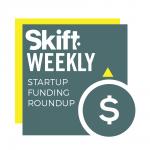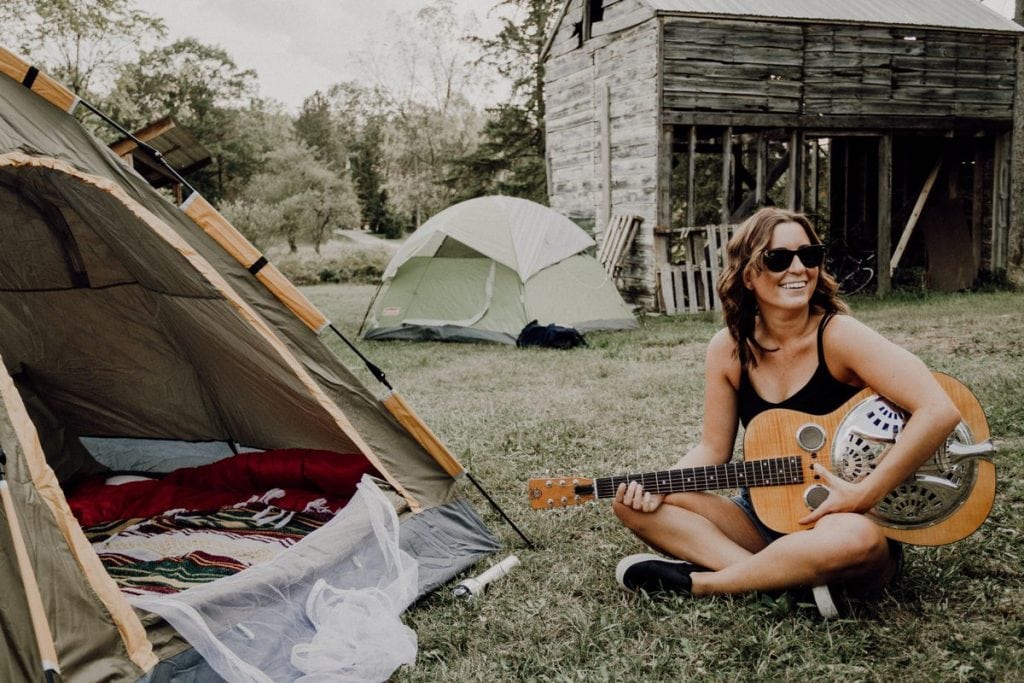Skift Take
Public campgrounds were already an alternative form of travel. But now there's "alternative alternative travel." Meet the startup Hipcamp, which is like an Airbnb for privately-owned campsites and hosted experiences.

Travel Startup Funding This Week
Each week we round up travel startups that have recently received or announced funding. Please email Travel Tech Reporter Justin Dawes at [email protected] if you have funding news.
The total publicized this week was more than $17 million.
>>Hipcamp, a booking site for camping experiences, raised $9.5 million in Series A funding, though it is unclear how much is equity and how much is convertible debt or other types of financing.
Benchmark led the round in the 28-person company. Other investors included Affirm co-founder Max Levchin and former Twitter CEO Dick Costolo.
First debuting online in 2013, Hipcamp is a kind of Airbnb for sourcing alternative options for pitching a tent from hosts who have potential campsites to rent out by the day, such as ranches, nature preserves, farms, and vineyards.
Like Airbnb, the San Francisco-based startup also offers posher experiences, such as tiny houses and yurts. One lucrative part of the market is to reach customers who don’t own their own tents or gear. This segment is called luxury glamping, or glamorous camping.
Co-Founder and CEO Alyssa Ravasio said, “Our model empowers landowners to create new revenue streams for their businesses, supporting their growth and ability to preserve and protect their land.”
>>Mapfit, a mapping technology platform, has raised a $5.5 million seed funding round.
The platform provides websites and app developers (iOS and Android) continuously-updated fast vector map serving and accurate geocoding, enabling best-in-class map experiences.
The $5.5 million in seed funding comes from an experienced group of global technology entrepreneurs and investors including
Cavalry Ventures participated in the round.
The New York City-based startup ingests uses data science to make educated guesses about the finer points of street maps, such as the location and proper labeling of main doorways to hotels and restaurants.
Mapfit claims it can accurately pinpoint the location of entrances for 95 percent of addresses assigned to building structures — enabling superior door-to-door navigation for ground-transport, ride-hailing, autonomous vehicle, and online travel companies.
The last-ten-feet navigation problem had been a hurdle for consumer mapping applications, with companies like Google and Apple offering different and inexact estimates of where businesses are. The startup’s data can be overlaid on other providers’ online maps.
>>Traxo, a business travel startup, has raised additional rounds of funding this spring in stages.
Within the past year Traxo has raised $1,835,000 in a series of stages. The round is still open and has a goal of raising $4 million.
Investor names were not disclosed.
The company has 20 full-time employees.
Major clients include, United Airlines, Lufthansa, TripAdvisor, Coupa, and Chrome River.
Funds will be used for product development, sales and marketing, and international expansion.
According to the company, “The problem Traxo solves in the travel industry is a global problem and not just limited to companies located in the U.S.”
Traxo said it intends to leverage this new round of funding to expand its suite of corporate travel data solutions to clients and travel supplier partners across Europe, to help them better capture the full scope of their travel spend and business travel booking activity – even the off-channel “leakage” spend, in real time.”
Traxo had previously raised $5.2 million in funding, with the support of TripAdvisor, in a Series B round that closed in 2016.
Skift recently named Traxo’s CEO Andres Fabris to its Skift’s 2018 Corporate Travel Innovators List.
Have an aviation-themed startup? Take it to the next level by participating in the Air Pitch Startup Competition 2018.
Skift Cheat Sheet:
We define a startup as a company formed to test and build a repeatable and scalable business model. Few companies meet that definition and the rare ones that do often attract venture capital — where money is provided today to fund growth in exchange for a promise of large returns in the future.
Funding tends to come in waves. Seed capital is money used to start a business, often led by angel investors and friends or family.
Series A financing is typically drawn from venture capitalists. The round aims to help a startup’s founders make sure that their product is something that customers truly want to buy.
Series B financing is mainly about venture capitalist firms helping a company grow faster, or scale up. These fundraising rounds can assist with recruiting skilled workers and developing cost-effective marketing.
Series C financing is ordinarily about helping a company expand, such as through acquisitions. In addition to VCs, hedge funds, investment banks, and private equity firms often participate.
Series D, E and beyond These mainly mature businesses and the funding round may help a company prepare to go public or be acquired. A variety of types of private investors might participate.
Check out our previous startup funding roundups, here. And also: Skift’s Top Travel Startups to Watch 2018.
The Daily Newsletter
Our daily coverage of the global travel industry. Written by editors and analysts from across Skift’s brands.
Have a confidential tip for Skift? Get in touch
Tags: funding, startups, vcroundup
Photo credit: A posed photo of a happy camper. You, too, can be a happy camper, according to new startup Hipcamp offers places to pitch a tent or book a glamping trip. Hipcamp
